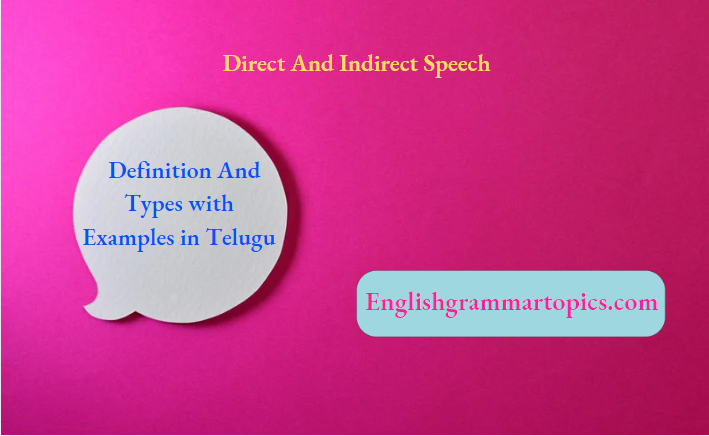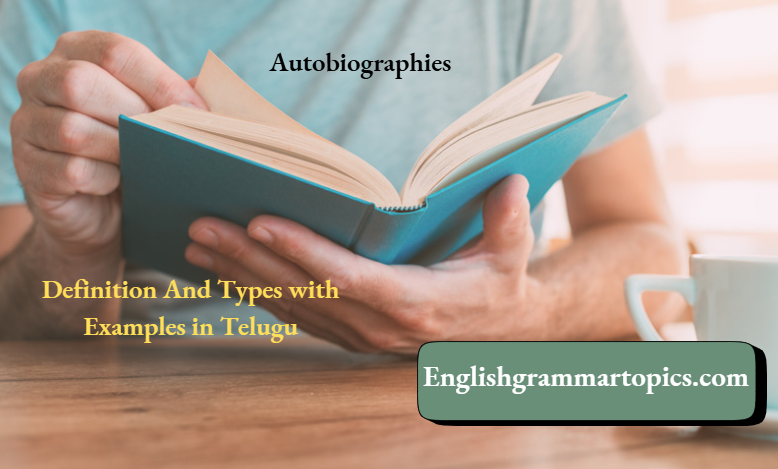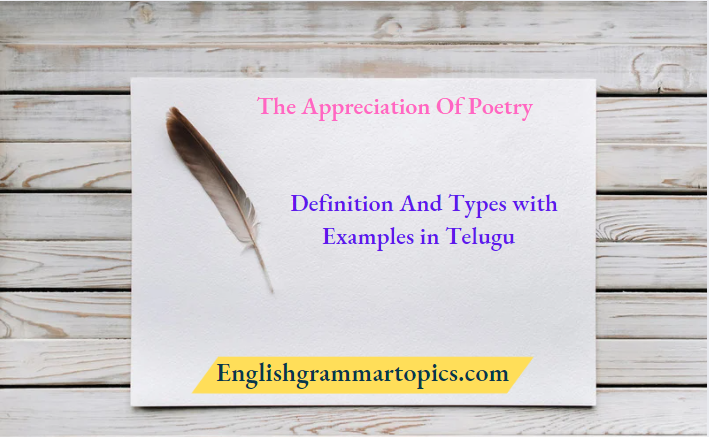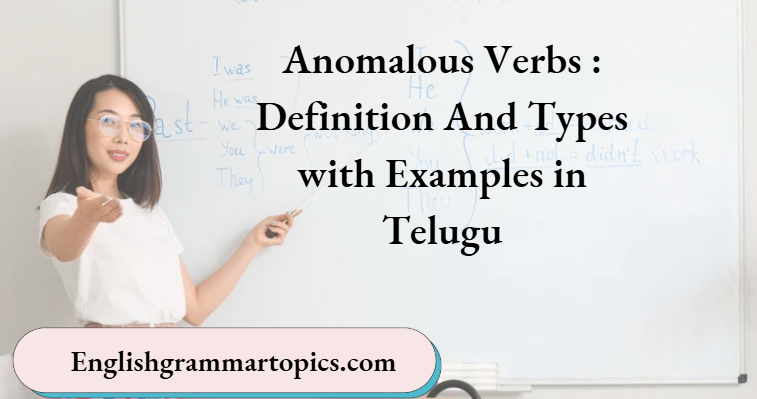అధ్యాయము 15
Direct And Indirect Speech
98. ఒక speaker యొక్క మాటలను మనం రెండు విధములుగా report చేయవచ్చును.
(a) అతను చెప్పింది చెప్పినట్లుగా report చేయుట. దీనిని Direct speech అని అంటాము.
(b) ఆయన చెప్పిన మాటలను చెప్పింది చెప్పినట్లుగా కాకుండా వానిని మన మాటలలో అతను ఇలా చెప్పినాడు అని చెబుతూ report చేయుట. దీనిని Indirect speech లేక Reported speech అని అంటారు.
Direct. Rama said, ‘I am very busy now.”
Indirect. Rama said that he was very busy then.
Direct Speech పద్ధతిలో speaker యొక్క మాటలను అదే విధంగా రాయుచూ అటు చివర ఇటు చివర inverted commas ను (“—” ) పెట్టవలయును.
Indirect speech విషయంలో ఈ కామా గుర్తులు అక్కరలేదు.
పై పద్ధతులలో అమలుపరచవలసిన కొన్ని మార్పులు ఉన్నవి: (Indirect పద్ధతిలో)
1) పై వాక్యములలో Indirect statement కు ముందు భాగములో “that” ను ఉపయోగించుట,
2) Pronoun అయిన “I” “he” గా మారుతుంది.
3) Verb పదము అయిన “am” “was” గా మారుతుంది.
4) Adverb అయిన “now” అను పదము “then” గా మారుతుంది.
Rules For Changing Direct Speech Into Indirect
99. Reporting verb principal verb era sor. verb 35 past tense భావములో ఉన్నప్పుడు Direct speech వాక్యములోని present tense verbs అన్నియూ past tense verb గా మారిపోవును. ఈ విధంగా :
(a) A simple present tense simple past గా మారిపోవును.
Direct. He said, ‘I am unwell.
Indirect. He said (that) he was unwell.
B) Present continuous tense past perfect గా మారిపోవును.
Direct. He said,’My master is writing letters.’
Indirect. He said (that) his master was writing letters.
C) Present perfect tense, past perfect tense గా మారిపోవును.
Direct. He said, “I have passed the examination.’
Indirect. He said (that) he had passed the examination.

Read and Learn more Synthesis of Sentences
గమనిక (Note: Future tense లో ఉన్న ‘shall’ అను auxiliary verb ‘ should ‘ గా మారిపోవును మరియు Future tense లో ఉన్న ‘will’ అను auxiliary verb ‘would’ గా గాని ‘should’ గా గాని మారిపోవును. ఖచ్చితమైన rule ఏమిటంటే Direct speech వాక్యములోనున్న simple past tense indirect speech లో past perfect tense గా మారిపోవును.
Direct. He said The horse died in the night.”
Indirect. He said that the horse had died in the night.
99 A. ప్రపంచవ్యాప్తంగా ఉన్న ఒక నిజాన్ని చెప్పునపుడు (axiom) గాని, main clause లోనున్న statement ఇప్పటికీ అమలులో ఉన్నప్పుడుగాని, subordinate clause లో ఉన్న tenses మారవు. ఇట్టి పరిస్థితిలో మనకు నచ్చిన tense ను subordinate clause లో అవసరాన్నిబట్టి వాడవచ్చును.
Direct. ‘I know her address’ said Gopi.
Indirect. Gopi said he knows/knew her address.
Direct. The teacher said, ‘The earth goes round the sun.’
Indirect. The teacher said the earth goes/went round the sun.
Direct. ‘German is easy to learn’, she said.
Indirect. She said German is/was easy to learn
ఒక statement నిజమా కాదా అన్న సందేహము ఉన్నపుడు చాలా చోట్ల past tense ను ఉపయోగిస్తాము.
100. Reporting verb (Indirect speech లోనున్న verb పదము ) Present Tense, లో Direct Speech tenses మారవు. ఈ విధమైన వాక్యములు :-
He says he is unwell.
He has just said his master is writing letters.
He says he has passed the examination.
He says the horse died in the night.
101. అవసరమైన చోట్ల Direct speech లోని pronouns లో మార్పులు చోటుచేసుకుంటాయి. ఈ విధంగా చేసినట్లయితే, పై reporter కు వానితో మాట్లాడే వానికి గల సంబంధాలు బాగుగా తెలియును. Original speaker ను ఇచ్చట గమనించవలసిన పనిలేదు.
Direct. He said to me, ‘I don’t believe you.
Indirect. He said he didn’t believe me.
Direct. She said to him. ‘I don’t believe you
Indirect. ” She said she didn’t believe him.
Direct. I said to him,’1 don’t believe you.”
Indirect. I said to him,’1 don’t believe you.”
Direct. I said to you, ‘I don’t believe you.”
Indirect. I said I didn’t believe you.
102. కాలము యొక్క సామీప్యతను, స్థలము యొక్క సామీప్యతను తెలియజేయు పదములు కాలము యొక్కయు, స్థలము యొక్కయు దూరమును తెలియజేయునవిగా మార్పుచెందును.
| now | becomes | then | today | becomes | that day |
| here | “ | there | tomorrow | “ | the next day |
| ago | “ | before | yesterday | “ | the day before |
| thus | “ | so | last night | “ | the night before |
Direct. He said, ‘I am glad to be here this evening.’
Indirect. He said that he was glad to be there that evening.
Speach ఒకే సమయములో గాని, ఒకే place లోగాని సంభవించినట్లయితే, పైన చెప్పిన మార్పులు జరగవు.
Direct. He says, “I am glad to be here this evening.”
Indirect. He says he is glad to be here this evening.
103. This మరియు these అను పదములు that and those గా మార్పు చెందును. ఆ సంఘటన దగ్గరలోనే జరిగితే ఈ మార్పు అవసరంలేదు.
Questions
104. Questions report Indirect Speech ‘asked’ ‘inquired’ అను పదములతో ప్రవేశ పెట్టడం జరుగుతుంది.
ప్రశ్న interrogative తో (asked అని గాని inquired అనిగాని) గాకుండా ప్రారంభమైతే, reporting verb నకు వెనువెంటనే whether గాని if గాని ఉండును.
Direct. He said to me, ‘What are you doing?”
Indirect. He asked me what I was doing.
Direct. “Where do you live?” asked the stranger.
Indirect. The stranger enquired where I lived.
Direct. The policeman said to us, ‘Where are you going?”
Indirect. The policeman enquired where we were going.
Direct. He said, ‘Will you listen to such a man?’
Indirect. He asked them whether they would listen to such a man. [Or] Would they, he asked, listen to such a man?
Direct. ‘Do you suppose you know better than your own father ?’ jeered his angry mother.
Indirect. His angry mother jeered and asked whether he supposed that he knew better than his own father.
Commands And Requests
105 . Commands (ఆజ్ఞలు) మరియు requests (విన్నపములు) మొదలగు వానిని report చేయునపుడు Indirect speech కొరకు ఒక verb ను వాక్యములో ప్రవేశపెట్టడం జరుగుతుంది. ఈ verb ఆజ్ఞను జారీచేయునదిగా గాని, విన్నపమును చేయునదిగా గాని ఉంటుంది. ఈ పరిస్థితిలో imperative mood (తప్పని సరియైనది విధిగా ఉండునది అను భావమును ఇచ్చునట్టిది) తన original భావమును వదలి infinitive (అనంతమైన భావమును ఇచ్చునది) గా మార్పుచెందును.
Direct. Rama said to Arjun, ‘Go away!
Indirect. Rama ordered Arjun to go away.
Direct. He said to him, ‘Please wait here till I return.’
Indirect. He requested him to wait there till he returned.
Direct. ‘Call the first witness,’ said the judge.
Indirect. The judge commanded them to call the first witness.
Direct. He shouted, “Let me go.”
Indirect. He shouted to them to let him go.
Direct. He said, ‘Be quiet and listen to my words.”
Indirect. He urged them to be quiet and listen to his words.
Exclamations And Wishes
106. ఆకస్మిక భావములను (exclamations) చేయునపుడు మరియు కోరికలను తెలియ జేయునపుడునూ, Indirect speech ని ఒక verb చేత ప్రవేశపెట్టడం జరుగుతుంది. ఆ verb భావమును గాని, కోరికను గాని తెలియజేయు పదమై ఉండవలయును.
Direct. He said, ‘Alas! I am undone.
Indirect He exclaimed sadly that he was undone.
Direct Alice said, ‘How clever I am”
Indirect. Alice exclaimed that she was very clever.
Direct. He said, “Bravo! You have done well.
Indirect. He applauded him, saying that he had done well.
Direct. ‘So help me, Heaven!” he cried, ‘I will never steal again’
Indirect. He called upon Heaven to witness his resolve never to steal again.
అభ్యాసము 104
ఈ క్రింది వాక్యములను Indirect Speech లోనికి మార్చండి :-
1. He said to me, ‘I have often told you not to play with fire’.
2 “You have all done very badly!’ remarked the teacher.
3. They wrote, ‘It is time we thought about settling this matter.”
4. The teacher promised, ‘If you will come before school tomorrow, I will explain ie
5. She wrote, ‘1 am waiting and watching and longing for my son’s return.”
6. The examiner’s orders were, ‘No one is to bring books into the room nor ask me questions about what I have told you to do.’
7. The dwarf said to her, ‘Promise me that when you are Queen you will give me your first-born child.
8. ‘That is my horse,’ said he, ‘and if I do not prove it in a few minutes I will give up my claim!
9. ‘I will avenge your wrongs,’ he cried, ‘I will not enter Athens until I have punished the king who had so cruelly treated you!
10. He wrote and said, ‘I am unable to come just now because I am ill, but I will certainly start as soon as I am well enough to do so.
11. One day he sent for Cassim and said to him, “You are now old enough to earn your living, so you must set off, and make your own way in the world.
అభ్యాసము 105
ఈ క్రింది వాక్యములను Indirect Speech లోనికి మార్చండి :
1. “What do you’want?” he said to her.
2 He said, “How’s your father?’
3. ‘Are you coming home with me?’ he asked.
4. He enquired, When, do you intend to pay me ?’
5. He said to us, ‘Why are you all sitting about there doing nothing?”
6. ‘Do you really come from China?’ said the prince.
7. The poor man exclaimed, “Will none of you help me?”
8. ‘Which way did she go?’ asked the young Rakshas.
9. Aladdin said to the magician, ‘What have I done to deserve so severe a blow?
10. ” ‘Don’t you know the way home?’ asked I.
11. ‘Do you write in a good hand?’ he. said.
12. “Have you anything to say on behalf of the prisoner?” said the judge, finally.
13. ‘Which is the proper way to answer this question, father ?’ the boy enquired.
14, “Have you anything to tell me, little bird ?” asked Ulysses.
15. The young sparrow said, ‘Mother, what is that queer object?’
16. Then aloud he said, ‘Tell me, boy, is the miller within ?’
17. “Who are you, sir, and what do you want?’ they cried.
18. ‘Dear bird,’ she said, stroking its feathers, ‘have you come to comfort me in my sorrow?’
19. The Rajah was deeply grieved, and said to his wife, ‘What can I do for you?’
20. When the sun got low, the king’s son said, ‘Jack, since we have no money, where can we lodge this night?’
21. She said to him, “What is it that makes you so much stronger and braver than any other man ?”
22. When the Brahmin approached, the first thief said, ‘Why do you carry a dog on your back? Are you not ashamed?”
అభ్యాసము 106
ఈ క్రింది వాక్యములను Indirect Speech లోనికి మార్చండి :-
1. ‘Bring me a drink of milk,’ said the swami to the villagers.
2. ‘Sit down, boys,’ said the teacher.
3. ‘Halt!’ shouted the officer to his men.
4. ‘Take off your hat,’ the king said to the Hatter.
5. The teacher said to him, ‘Do not read so fast!
6. He said to me, “Wait until I come.’
7. ‘Hurry up,’ he said to his servant, ‘do not waste time.’
8. ‘Run away, children,’ said their mother.
9. He said, ‘Daughter, take my golden jug, and fetch me some water from the well.
10. ‘Go down to the bazaar. Bring me some oil and a lump of ice.’ ordered his master.
అభ్యాసము 107
ఈ క్రింది వాక్యములను Indirect Speech లోనికి మార్చండి :-
1. ‘What a rare article milk is, to be sure, in London !’ said Mr. Squeers with a sigh.
2. “What a stupid fellow you are!’ he angrily re-marked.
3. He said. “My God! I am ruined.”
4. He said, ‘Alas! our foes are too strong.
5. He said, ‘What a lazy boy you are! How badly you have done your work !’
6. ‘How smart you are!’ she said.
7. He said, ‘Oh’! that’s a nuisance.”
8. He said, ‘How cruel of him!”
9. He said, “What a pity you did not come l’
10. “Ah me !’ exclaimed the Queen, ‘What a rash and bloody deed you have done!”
Conversion Of Indirect Into Direct
107. Indirect Speech ని Direct Speech లోనికి మార్పు చెయ్యడానికి పెద్ద కష్టమేమీ ఉండదు. ఈ క్రింది examples ను పరిశీలించండి:-
Indirect. He inquired whether his name was not Ahmed.
Direct. He said to me, ‘Is not your name Ahmed ?”
Indirect. As the stranger entered the town, he was met by a policeman, who asked him if he was a traveller. He replied carelessly that it would appear so.
Direct As the stranger entered the town, he was met by a policeman, who asked, ‘Are you a traveller?’ ‘So it would appear; he answered carelessly.
Indirect. She asked how she, a girl, who could not ride or use sword or lance, could be of any help. Rather would she stay at home and spin beside her dear mother.
Direct. She said, ‘How can I, a girl, who cannot ride or use sword or lance, be of any help? Rather would I stay at home and spin beside my dear mother?”
అభ్యాసము 108
ఈ క్రింది వాక్యములను Direct Speech లోనికి మార్చండి :-
1. He asked Rama to go with him.
2. Rama replied that he could not do so.
3. He asked his father when the next letter would come.
4. His father replied that there might not be another that year.
5. Rama asked me what had become of Harl.
6. I told him that I had not seen him for months.
7. The master requested that they would attend carefully to what he was saying.
8. I wrote that I would visit him next day.
9. He observed that he had never liked doing that.
10. I told them to be quiet.
11. He asked me if I had anything to say.
12. Rama asked Hari if he would change places with him.
13. He said that he was tired, and that he wished to go to bed.
14. An old mouse asked who would bell the cat.
15. John said that he wanted to be a soldier.
16. He asked me where I was going.
18. Abdul said that he had seen that picture.
17. He asked me what I wanted.”
19. The boy said that he would go with us.
20. He said that the earth moves round the sun.
21. The stranger asked Alice where she lived.
22. I asked Mary if she would lend me a pencil.
23. He told us that he had waited an hour.
24. The lady inquired if he was now quite well again.
25. He said that he had come to see them.
26. He said that though he had come, it was against his will.
27. The speaker said that it gave him great pleasure to be there that evening.
28. He asked them whether they would listen to such a man.
29. He asked me if I would accompany him.
30. He ordered him to leave the room and forbade him to return.
31. The mother asked het boy where he had been all the afternoon.
32. Hari asked Rama if he had read the letter.
33. The King asked the philosopher whom he considered the happiest man living.
34. The magistrate asked the prisoner what he was doing with his hand in the gentleman’s pocket.
35. The fox cried out to the goat that a thought had just come into his head.
36. He advised his sons notto quarrel amongst themselves, when he was dead but to remain united.
37. The lion told the fox that he was very weak, that his teeth had fallen out, and that he had no appetite.
38. He replied that he had promised to reward his soldiers and that he had kept his word.
108. ఈ క్రింది వాక్యములను జాగ్రత్తగా పరిశీలించండి. Direct Speech నుండి Indirect Speech లోనికి మారుచున్నప్పుడు సంభవించిన మార్పులను జాగ్రత్తగా గమనించండి :-
Direct. The Prince said, ‘It gives me great pleasure to be here this evening.”
Indirect. The Prince said that it gave him great pleasure to be there that evening
Direct. He said, ‘I’shall go as soon as it is possible.”
Indirect. He said that he would go as soon as it was possible.
Direct. He said, ‘I do not wish to see any of you; go away!
Indirect. He said that he did not wish to see any of them and ordered them to go away.
Direct. My teacher often says to me, ‘If you don’t work hard, you will fail.
Indirect. My teacher often says to me that if I don’t work hard I shall fail.
Direct. He said, “We are all sinners.”
Indirect. He said that we are all sinners.
Direct. The lecturer said, ‘Akbar won the respect of all races and classes by his justice.
Indirect. The lecturer said that Akbar won the respect of all races and classes by his justice.
Direct. He said, ‘Let us wait for the award.’
Indirect. He proposed that they should wait for the award.
Direct. ‘Saint George stike for us !’ exclaimed the Knight, ‘do the false yeomen give way?’
Indirect. The Knight prayed that Saint George might strike for them and asked whether the false yeomen gave way.
Direct. ‘Curse it l’exclaimed the driver. “Who could have foreseen such ill-luck? But for accident we should have caught the train easily.’
Indirect. The driver exclaimed with an oath that nobody could have foreseen such ill-luck. But for the accident they would have caught the train easily.
Direct. The general, addressing his mutinous troops, said, ‘You have brought disgrace upon a famous regiment. If you had grievances, why did you not lay them before your own officers? Now you must first suffer punishment for your offence before their complaints could be heard.
Indirect. The general told his mutinous troops that they had brought disgrace upon a famous regiment. If they had grievances, why had they not laid them before their own officers? Now they must suffer puishment for their offence before their complaints could be heard.
Direct. The traveller said, ‘Can you tell me the way to the nearest inn?” “Yes,’ said the peasant, ‘do you want one in which you can spend the night?’ ‘No,’ replied the traveller, ‘I only want a meal.’
Indirect. The traveller asked the peasant if he coule tell him the way to the nearest inn. The peasant replied that he could, and asked whether the traveller wanted one in which he could spend the night. The traveller answered that he did not wish to stay there, but only wanted a meal.
Remark: examples es replied in the affirmative’ ‘replied in the negative అను wrong phrases ను వాక్యముల నుండి తొలగించాము.
28. He asked them whether they would listen to such a man.
29. He asked me if I would accompany him.
30. He ordered him to leave the room and forbade him to return.
31. The mother asked het boy where he had been all the afternoon.
32. Hari asked Rama if he had read the letter.
33. The King asked the philosopher whom he considered the happiest man living.
34. The magistrate asked the prisoner what he was doing with his hand in the gentleman’s pocket.
35. The fox cried out to the goat that a thought had just come into his head.
36. He advised his sons notto quarrel amongst themselves, when he was dead but to remain united.
37. The lion told the fox that he was very weak, that his teeth had fallen out, and that he had no appetite.
38. He replied that he had promised to reward his soldiers and that he had kept his word.
108. ఈ క్రింది వాక్యములను జాగ్రత్తగా పరిశీలించండి. Direct Speech నుండి Indirect Speech లోనికి మారుచున్నప్పుడు సంభవించిన మార్పులను జాగ్రత్తగా గమనించండి :-
Direct. The Prince said, ‘It gives me great pleasure to be here this evening.
Indirect. The Prince said that it gave him great pleasure to be there that evening.
Direct. He said, “I’shall go as soon as it is possible.
Indirect. He said that he would go as soon as it was possible.
Direct. He said, ‘I do not wish to see any of you; go away!
Indirect. He said that he did not wish to see any of them and ordered them to go away.
Direct. My teacher often says to me, ‘If you don’t work hard, you will fail.
Indirect. My teacher often says to me that if I don’t work hard I shall fail.
Direct. He said, ‘We are all sinners.’
Indirect. He said that we are all sinners.
Direct. The lecturer said, ‘Akbar won the respect of all races and classes by his justice.
Indirect. The lecturer said that Akbar won the respect of all races and classes by his justice.
Direct. He said, ‘Let us wait for the award.”
Indirect. He proposed that they should wait for the award.
Direct. ‘Saint George stike for us !’ exclaimed the Knight, ‘do the false yeomen give way?”
Indirect. The Knight prayed that Saint George might strike for them and asked whether the false yeomen gave way.
Direct. ‘Curse it l’ exclaimed the driver. ‘Who could have foreseen such ill-luck? But for accident we should have caught the train easily.’
Indirect. The driver exclaimed with an oath that nobody could have foreseen such ill-luck. But for the accident they would have caught the train easily.
Direct. The general, addressing his mutinous troops, said, “You have brought disgrace upon a famous regiment. If you had grievances, why did you not lay them before your own officers? Now you must first suffer punishment for your offence before their complaints could be heard.
Indirect. The general told his mutinous troops that they had brought disgrace upon a famous regiment. If they had grievances, why had they not laid them before their own officers? Now they must suffer puishment for their offence before their complaints could be heard.
Direct. The traveller said, ‘Can you tell me the way to the nearest inn?’ ‘Yes,’ said the peasant, ‘do you want one in which you can spend the night?’ ‘No,’ replied the traveller, ‘I only want a meal.’
Indirect. The traveller asked the peasant if he coule tell him the way to the nearest inn. The peasant replied that he could, and asked whether the traveller wanted one in which he could spend the night. The traveller answered that he did not wish to stay there, but only wanted a meal.
Remark: ‘replied in the affirmative’ 8 ‘replied examples in the negative అను wrong phrases ను వాక్యముల నుండి తొలగించాము.
అభ్యాసము 109
ఈ క్రింది వాక్యములను Indirect Speech లోనికి మార్చండి :-
1. Cheer up, mother, I’ll go and get work somewhere said, Jack. I have taken pity on you and will help you.
2. But the sea-god cried, ‘Do not be afraid, noble prince.
3. ” ‘No,’ said the child; ‘I won’t kneel, for if I do, I shall spoil my new breeches.”
4. ‘What a horse they are losing for want of skill and spirit to manage him !’ exclaimed Alexander.
5. Telemachus replied, ‘How can I drive away the mother, who bore me and nourished me ?”
6. ‘Call no man happy, was the reply of the philosopher, ‘until he has ended his life in a fitting manner.
7. Then said the wolf to the fox, ‘Now either yield thyself as vanquished, or else certainly I will kill thee.”
8. ‘I believe,’ said he, that we are in this country among a people whom we like and who like us.’
9. He said, “Take that bird away. Its gilded cage reminds me of my father whom I imprisoned.”
10. I have just one word to say to you,’ said the dealer. ‘Either make your purchase, or walk out of my shop!
11. ‘My hour is come, thought he. ‘Let me meet death like a man.”
12. ‘Be not cast down,’ said Mentor, ‘remember whose son thou art, and all shall be well with thee!
13. Bhishma said: ‘Boys! boys! remember you playa game. If it be Arjuna’s turn let him have it.”
14. ‘Friends,’ said the old man, ‘sit down and rest yourselves here on this bench. My good wife Baucis has gone to see what you can have for supper.
15. ‘Ah! you don’t know what these beans are,’ said the man; if you plant them over-night, by morning they grow right up to the sky.
16. ‘How clever I am I’ he said. ‘All my life I have been talking prose without knowing it.’
17. ‘I am old and lonely,’ said she. ‘Hast thou no pity on my lonelines? Stay with me, my best son, for thou art yet more boy than man.’
18. ‘I do not practise’, Goldsmith once said, ‘I make it a rule to prescrible only for my friends.’ ‘Pray, dear doctor,” said Beauclerk, ‘alter your rule, and prescribe only for your enemies!
19. He said: “Who are you to speak to me like this? I am the master. Why should I help you? It is your work, nof mine, to draw the art.
20. “I cannot hope to see these trees which I am planting come in perfection,” said the duke, ‘but it is right for me to plant for the benefit of my successors.
21. ‘Are you angry, my friends, said the king, ‘because you have lost your leader? I am your king; I will be your leader.
22. Said an old Crab to young one, ‘Why do you walk so crooked, child? Walk straight !'”Mother, said the young Crab, ‘show me the way, will you?’
23. ‘Who are you?” said the Deer. The Jackal replied: “I am Kshudrabuddhi the Jackal. I live in this forest all by myself; I have neither friend nor relation.
24. One summer some elephants were very much distressed by the heat, and said to their leader: “We are absolutely perishing, for want of water. The smaller animals have bathing-places but we have none. What are we to do? Where are we to go ?”
25. When the king saw him coming he said, ‘Pray’ who are you, and what do you. want?’ The Rabbit said, ‘I am an ambassador from His Majesty Chandra-the Moon. The Elephant King replied, ‘Declare your errand.’
26. A young Rajah once said to his Vizier, ‘How is it that I am so often ill ? I take great care of myself; I never go out in the rain; I wear warm Clothes; I eat good food. Yet I am always catching cold or getting fever.
27. ‘My sons,’ said he, ‘a great treasure lies hidden in the estate I am about to leave you.’ ‘Where is it hid ?” said the sons. ‘I am about to leave you.’ said the old man, ‘but you must dig for it.’
28. ‘How very well you speak French I’Lady Grizzel said. ‘I ought to know it, Becky modestly said. ‘I taught it in a school, and my mother was a Frenchwoman.
29. “What are you going to do with the .tinder-box?” asked the soldier. “That’s no business of yours! .said the witch; “You’ve got your money; give me my tinder-box.
30. ‘My name is Noman,’ said Ulysses, ‘my kindred and friends in my own country call me Noman.’ ‘Then,’ said the Cyclops, ‘this is the kindness I will show thee, Noman; I will eat thee last of all thy friends.’
31. I am a dead man, Hardy,’ said Nelson; ‘I am going fast; it will be all over with me soon. Come nearer to me. Let my dear Lady Hamilton have my hair, and all other things belonging to me.
32. He said to the shoemaker: “You are a big blockhead; you have done the reverse of what I desired you. I told you to make one of the shoes larger than the other, and, instead of that, you have made one of them smaller than the other!
33. I can extend no other mercy to you,’ said the Raja, ‘except permitting you to choose what kind of death you wish to die. Decide immediately, for the sentence must be carried out.’ I admire your kindness, noble Prince,’ said the jester, “I choose to die of old age.”
34. Her mother said, ‘You must go straight to your grandmother’s cottage and not loiter on the way. There is a wolf in the wood through which you are going; but if you keep to the road he won’t do you any harm. Now, will you be a good girl and do as I tell you?”
35. Next morning at breakfast his wife said to him, ‘George, I think I can tell what is amiss with our clock. “Well, what is it?’ he sharply asked. ‘It wants winding up,’ said his partner.
36. A fawn one day said to her mother, ‘Mother, you are bigger than a dog, and swifter and better winded, and you have horns to defend yourself, how is it that you are so afraid of the hounds ?” She smiled and said, ‘All this, my child, I know fully well; but no sooner do I hear a dog bark, than, someh,?” or other, ‘my heels take me off as fast as they can carry me.’
37. Said a young mole to her mother, ‘Mother, I can see.’ So her mother put a lump of frank incense before her, and asked her what it was. ‘A stone,’ said the young one. ‘O my child !’ said the mother, ‘not only do you not see, but you cannot even smell.’
38. “What are you doing, good old woman ?’ said the princess. ‘I’m spinning, my pretty child.”Ah, how charming ! Let me try if I can spin also.”
39. “You say, said the judge, that the bag you lost contained one hundred and ten pounds.’ ‘Yes, your honour, replied the miser. Then as this one contains one hundred pounds it cannot be yours.’
40. He answered slowly, ‘Alas! my dear son, why do you ask the one thing I cannot grant you? Your hands are too weak to rein those fiery beasts; you do not know the path. Come, ask something else, anything but that.
41. The speaker said, ‘I entirely object to the proposal. I object to it as founded on a wrong principle, and I object to it as highly inconvenient at this time. Have you considered all that this proposal involves? Gentlemen, I entreat you to be cautious.
42. Kausalya said to Rama, ‘Do not desire, 0 my child, to possess the moon, because it is thousands of miles off, and it is not a plaything for children and no child ever got it. If you wish I will bring some jewels that are brighter than the moon, and you can play with them.’
43. The hen bird was just about to lay, and she said to her mate: ‘Cannot you find me some place convenient for laying my eggs ?”And is not this,’ he replied, ‘a very good place for the purpose?’ ‘No,’ she answered. ‘for it is continually overflowed by the tide. “Am I, then, become so feeble, he exclaimed, ‘that the eggs laid in my house are to be carried away by the sea?’ The hen bird laughed and said, ‘There is some considerable difference between you and the sea.
44. A cat hearing thfit a hen was laid up sick in her nest, paid her avisit of condolence, and creeping up to her, said: “How are you, my dear friend? What can I do for you? What are you in want of .? Only tell me. Is there anything in the world that I can bring you? Keep up your spirits, and do not be alarmed.’ ‘Thank you,’ said” the hen. ‘Do you be good enough to leave me, and I have no fear but I shall soon be well.
45. ‘Sweet child,’ he answered, ‘do not fret, for I can make you happier here than everyou could have been on the earth; I will give you beautiful things to play with, which a queen would envy. Rubies and diamonds shall be your toys, and your plates shall be of solid gold. All the beautiful things you see, belong to me, for I am king of this rich underworld.” But she only replied, ‘I was happy playing with the pebbles on the seashore, and I care only for the sparkle of the little waves on the shining sand. Here there are no flowers, no sun, and she wept anew.









